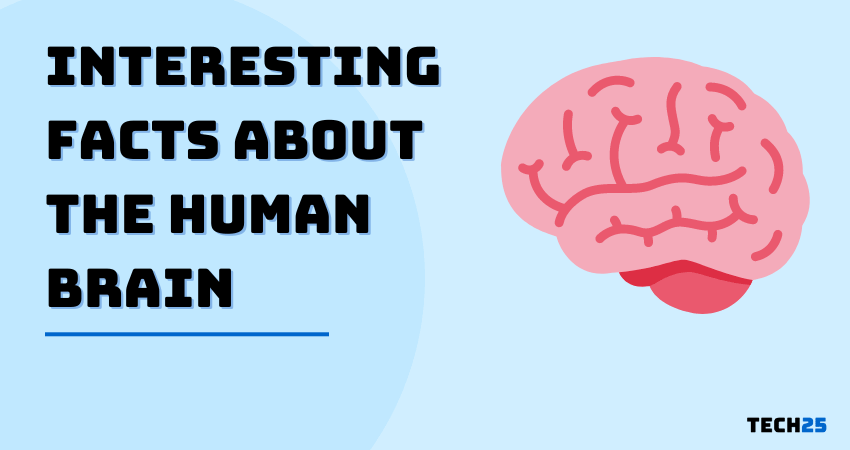The human brain is one of the most complex and mysterious parts of our body. Today we post about some interesting facts about the human brain you might not be aware of.
Without this highly-developed brain, it wouldn’t be possible for humans to thrive on Earth. This is the central organ of the central nervous system of the human body. In this post, we will cover 25 fun interesting things about the brain.
Before we start the list you can watch a long video about the brain, or just skip to reading if you prefer it:
1. It’s a Myth: ‘We Use 10% of Our Brain’
You might have heard this phrase that ‘Humans only use 10 percent of the brain’. Many people also believe that it was said by Albert Einstein.
However, in reality, this is incorrect information. The truth is that we use most of our brainpower almost every time.
facts:
- Our brain stays fully active even when we are sleeping or unconscious. Naturally, the percentage of brain usage depends on the task you are participating in.
- It is also different from person to person. But whatever we do, we use more than 10% of our brain almost all the time.
2. Our Brain Generates Electricity
It is reported that when the brain is active, it usually generates about 12 watts of power. This amount of power is sufficient for turning on a LED light bulb.
3. Brain without Oxygen
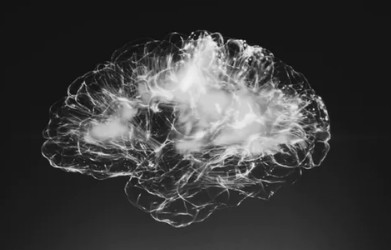
The weight of the brain is about 2 percent compared to the weight of the human body. But it needs about 20 percent of the total oxygen we breathe.
That means Oxygen is vital to the activity of the brain. In fact, your brain can only survive for about 4 minutes without Oxygen. After this period, the brain cells will start to die gradually.
4. Pain Receptors in the Brain
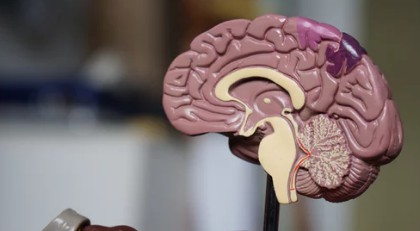
There are no pain receptors in the brain. Because of the presence of pain receptors on our body parts, we feel pain.
As the brain does not contain any pain receptors, you can’t feel any pain on it. It just interprets all the pain signals transferred to it.
This is why doctors can perform ‘Awake Brain Surgery’ or ‘Awake Craniotomy’ on patients where the patient would usually be awake and alert during this type of brain surgery.
Doctors would use anesthetics to numb the scalp in this process. But the brain would be active throughout the surgery.
5. Brain Surgeries

Brain surgeries can be of various types. It depends on the condition of the patient and the area of the brain it is being performed on.
It is one of the most intricate surgeries of them all. Interestingly, we have found out that humans have performed brain surgeries even in the Stone Age.
The 1st record of brain surgery dates back to the 1800s.
6. The Weight and the Growth of the Brain
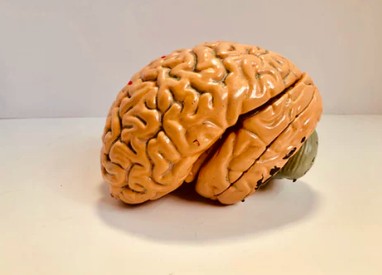
The weight of the brain varies from person to person. It also depends on the age of the person. Usually, the average weight of the human brain is about 1,300 to 1,400 grams.
That is about 3 lbs. The human brain is about 15 cm in length. The brain inside a human body develops very fast. It starts to develop when we are still in the womb.
Reports say that about 250,000 neurons are developed and added per minute during the initial brain development even before you are born.
Since then, our brain continues to grow gradually. Many reposts suggest that the human brain develops until 30 to 40 years of age. However, the size and the weight of the brain reaches its full potential between 16 – 20 years.
7. Headache and The Brain

It might seem that headache is a pain in your brain. But you already know that the brain doesn’t feel pain as it doesn’t have any pain receptors.
The brain interprets the signal of pain and tells you that you are suffering from a headache.
That means a headache is not a pain in the brain
at all. According to researches, it is known that headaches happen mostly in
the blood vessels, nerves, and various muscles related to the head and neck.
8. Neurons in the Human Brain
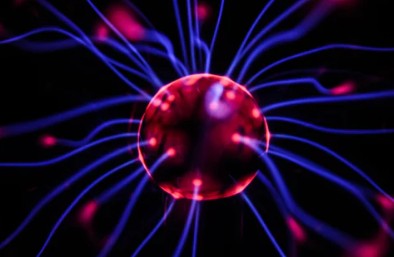
The human brain is full of neurons. We can divide these neurons into 3 categories such as:
- Sensory neurons
- Motor neurons
- Interneurons.
The neurons are there for transferring information from sensory organs to the brain.
These also control the activity of the voluntary muscles. It is reported that the human brain contains about 86 billion neurons on average. In comparison, our Galaxy ‘Milky way’ contains about 100 billion planets.
9. Speed at Which Information Transfers in the Brain
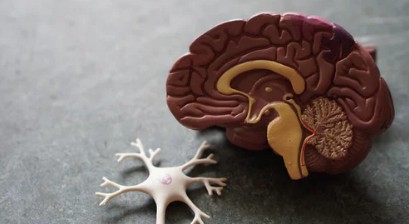
As previously mentioned, the human brain contains about 86 billion neurons on average. These neurons transfer signals across synapses. And, we know that there are about 18 to 32 trillion synapses in the brain.
And, the neurons send out the signals across synapses about 0.1 to 2 times per second. If you calculate that, then it would be that our brain is processing about 18 to 640 trillion signals per second. That is extremely fast, isn’t it?
10. Alcoholism and the Brain

Alcohol has a very serious impact on the human brain. It can block signals from transferring between neurons in the brain. As a result, it leads to slowed reflexes, slurred speech, and impulsive behaviors.
Alcohol primarily affects the hippocampus of the brain. This part of the brain is responsible for memory.
You might think that you have forgotten everything when you are blacked out from alcohol.
However, this is not the actual cause, your brain becomes unable to create any new memories in those moments, so you can’t remember anything after you have blacked out from alcohol.
11. Dreams and the Human Brain

We know that our brain stays active even when we are sleeping. Typically, people in ancient times would think that when you sleep, you are almost dead as your brain is not functioning.
However, with the advancement of modern medical science, we know that it is not true.
Interestingly, dreams are proof that your brain
keeps working even if you are asleep. It is thought that dreams are a result of
the combination of neurological factors, psychological factors, and our imagination.
12. Effects of Exercising Your Brain
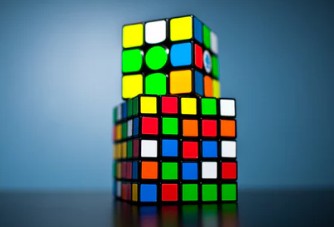
Physical exercise is very important to our bodies. Similarly, brain exercises can be of great help for improving your brain’s cognitive ability.
Physical exercise can also have a positive impact on the functioning of the brain. To exercise your brain, you can play brain training games, solve puzzles, and more.
There are reports that playing musical instruments, listening to music, painting, socializing, and even playing particular video games also has a great impact on the brain.
If you want to improve the ability of your brain, you can start to do both physical and brain exercises.
13. Our Brains Can’t Multitask

Nowadays, we tend to multitask a lot. However, in reality, our brains are not capable of multitasking. When we think we are multitasking, we are actually context switching.
The brain is wired to restart and refocus every time you switch between different types of tasks.
That means your brain cannot perform or process multiple tasks simultaneously. Many reports show that trying to multitask actually wastes time.
You are also more prone to making mistakes when multitasking.
14. How the Brain Recalls a Memory

The memories of our brain are stored in the hippocampus. However, our brain is not so great at recalling memories.
Typically, when you want to recall a memory, your brain repeats a similar neural pattern that generated in the time of the original event. So, every time you recall something, your brain is living the moment again.
But, chances are that the memory might not always be entirely accurate compared to the real event.
For instance, you might know a particular word that you couldn’t recall at a given moment. But, later, you might remember it easily without any issue.
15. Recalling Memory in Cases of Brain’s Exposure to Trauma

In the case of exposure to trauma, fear, brain injury, etc., recall memory is very limited. It is due to the fact that people with these types of issues would only be able to recall flashbacks or shredded memories of the event, not the entire or accurate memory.
Even though they would not be able to recall how they felt at the moment, they will be able to recognize the feelings through images or sounds.
That way people associate different sounds or images to the tragic event that took place right at that time.
As a result, a familiar sound or a picture ( those were present during the tragic event ) can trigger a similar feeling of fear or pain from the past event.
16. Light Sensitivity of Brain

According to various studies, it is found that the human brain is sensitive to light. Moreover, it is stated that there are certain brain cells that react to light if they are exposed to direct light.
These are known as non-visual photoreceptors of the brain. It is also thought that these brain cells are responsible for regulating our circadian rhythms.
As a result, these light receptors can have an influence
on insomnia or similar issues. Interestingly, there are various types of light therapy
available to heal different brain-related issues.
17. Taste Receptors in the Brain
Believe it or not, there are taste buds or taste receptors present inside your brain. These brain taste buds can detect the change in blood sugar.
This is very useful actually. Because of these taste receptors, our brains can regulate blood sugar levels.
18. The Left & Right Hemispheres of The Brain
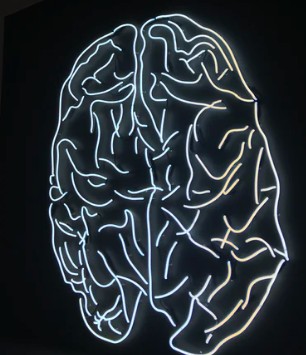
Simply put, there are 2 sides of the brain, left and right hemisphere. Both of these sides are connected with each other and they also look very similar.
However, researchers have found that they have very different functions when it comes to controlling bodily processes.
The right hemisphere i.e. the right side of the brain is liable on controlling the left side of the body. On the opposite, the left side of the brain or the left hemisphere is responsible for processing all the functions related to the right side of the body.
It is known that the left hemisphere is responsible for logical tasks like calculation, mathematics, science, and analytics, etc.
By contrast, the right half of the brain coordinates tasks related to arts and creativity. For the record, we all use both sides of the brain. Thus, it is not accurate that people could only either be left or right-brained. It is a myth.
19. Brain in Babies

At birth, the brain of a baby would usually be about one-third the size compared to an adult’s brain.
But, the brain continues to grow and develop on babies rapidly. In fact, the brain will be around 80% of the size of an adult brain by the age of 2 years old.
Due to this rapid development of the infant’s brain, about 60% of the total metabolic energy of a baby would be spent on the growth of the fast-growing brain.
20. Dehydration and Brain
According to reports, it is known that the brain is composed of about 73 percent of water. As a result, the body needs lots of water to allow the brain to function properly.
That is why dehydration of any kind is bad to the human brain. So, to keep your brain in the best form, you should keep your body hydrated as much as possible.
21. Remembering or Memorizing Something
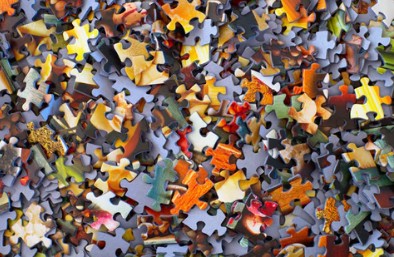
When you are remembering something, your brain actually replays the event as it happened.
In the process, it actually strengthens this very memory. This is why it is very useful to repeat something over and over to memorize it.
It also applies to learning new skills. For instance, let’s say, you want to learn touch typing.
In that case, it is very important to practice the skill in a constant manner to associate your brain to typing without looking at the keyboard.
The more you would practice the patterns, the better you will be. Many people also call it ‘Muscle Memory’.
However, in reality, muscles don’t have any memory. Rather, it is the brain that is responsible for memorizing the pattern.
22. All the Blood Vessels in the Human Brain
Blood vessels carry the necessary blood to the brain. Our brain contains an innumerable number of blood vessels.
If you could connect the blood vessels end-to-end, then the length of the blood vessels present in the human brain would be about 120,000 miles or 193, 121 kilometers. That is almost equal to half the distance between Earth and the Moon.
23. The Capacity of Human Brain
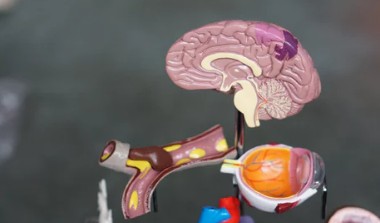
Simply put, the storage capacity of the human brain is virtually unlimited. At the same time, according to a rough calculation of a professor of psychology named ‘Paul Reber’ stated that our brain has a storage capacity of about 2,500,000 GB or 2.5 Petabytes.
However, you can’t remember all the things forever. For instance, most short term memories last about 20 to 30 seconds.
Whereas some of the particular long term memories can last for the rest of your life. But other long term memories need to be remembered or recalled frequently to make them last a long time.
24. The Limbic System

The limbic system on our brain is responsible for memories and emotions. It also includes the part of the brain that detect fear, feelings, and interpret sensory information.
As a result, if you smell something it will be perceived by the limbic system. And, that is the reason why our brain can associate a particular scent with a specific event.
If the limbic system of your brain is damaged, then you will suffer from unstable feelings, unbalanced emotions, and might lose the ability to store/retrieve information in the conscious memory.
Alcohol and drug abuse can have very negative impacts on the limbic system of the brain.
25. Human Brain vs. Computer

So, which one is the best between the computer and the human brain? We all know the answer that our brain is still ahead of the computer. However, over the course of time, we have made tremendous improvements in the information and technology field.
Right now, there are AI-powered computers that can replicate about 75 percent of the nervous system of humans.
The computer is way ahead compared to the human brain when it comes to calculation, motor/sensory inputs or outputs, and processing information.
However, our human brain has an advantage over the computer when it comes to emotion, creativity, empathy, planning and execution, and consciousness.
Summing up
The human brain is a fascinating thing. With the
advancement of science and technology, we have learned plenty of things about the
brain. Yet, we have a whole lot to understand and learn about this mysterious
part of our body.
It is evident that if you want your brain to perform better, then you should exercise, eat a healthy diet, drink lots of fluid, and get a good sleep regularly.
We hope you enjoyed all these interesting facts and that they would be beneficial to you. Plus, you can also read our post on some fascinating facts about the human body.
